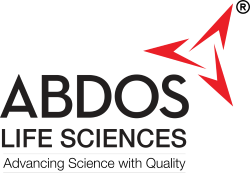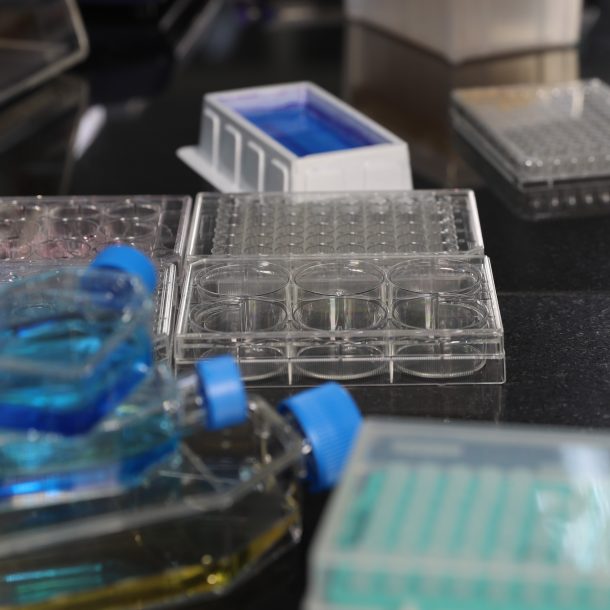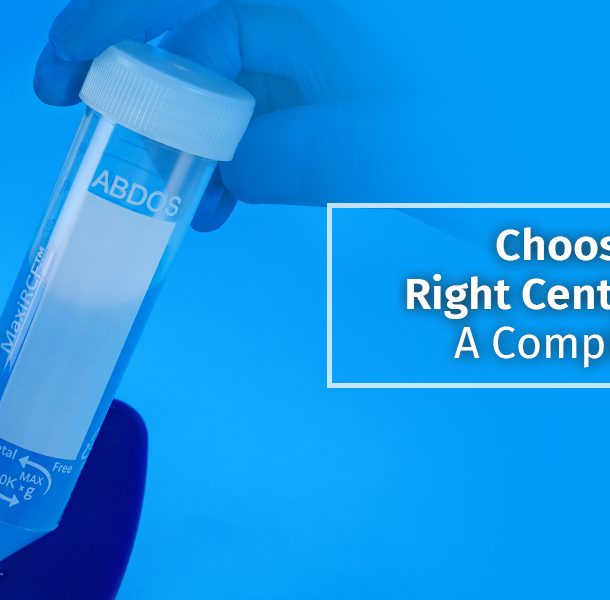
How to Choose the Right T-Flask for Your Cell Culture Needs
Tissue culture flasks (T-flasks) are among the most versatile and widely used cell culture vessels in laboratories around the world. Engineered for sterility, optical clarity, and ease of handling, a T-flask for cell culture, typically made of high-grade polystyrene, provides a transparent, rectangular surface that promotes strong and consistent cell growth.
Whether you are working with adherent or suspension cultures, a polystyrene T-flask offers the ideal environment for your cells to flourish. At Abdos Life Sciences, our flasks are built to meet the rigorous demands of researchers, enabling success across a wide range of applications in biotechnology, biopharma, and academic research.
A Brief History of the Laboratory T-Flask
The laboratory T-flask was first developed by Dr. Wilton Robinson Earle (1902–1964), a pioneer in cell culture. He designed this flask to facilitate the growth of adherent cells in both research and industrial environments. The name “T-flask” originates from the shape of its horizontal neck and rectangular base, which together resemble the letter “T” when viewed from above. This iconic design has stood the test of time, remaining a gold standard in adherent cell culture systems.
Treated vs. Untreated Surfaces: How Surface Treatment Matters
To support cell adhesion, most tissue culture flasks are surface treated. At Abdos, our treated T-flasks undergo vacuum plasma treatment, a method that changes the polystyrene surface to make it more hydrophilic. These surface treatments enhance cell adhesion by encouraging the binding of proteins like fibronectin and vitronectin.
These alterations introduce oxygen-containing functional groups such as hydroxyl and carboxyl, which stimulate cell attachment and uniform growth. Aside from uniform cell distribution during seeding for steady attachment and growth, a surface treated T-flask for cell adhesion is crucial for the best outcomes with adherent cells.
Vented vs. Non-Vented T-Flasks: Choosing the Right Cap
The choice between a vented T-flask and a non-vented T-flask depends on your culture conditions, particularly the gaseous requirements of your cells –
- Vented T-Flask: Specifically designed to facilitate to gas exchange, these flasks are perfect for aerobic cell culture and assist in maintaining a stable, healthy environment for sensitive cell lines. It is ideal for standard adherent cell culture systems.
- Non-Vented T-Flask: These flasks create an oxygen-restricted, sealed environment, which is ideal for anaerobic organisms or specific experimental conditions, when minimal gas exchange is required.
Hence, it is essential to understand the role of gas exchange in tissue flasks is crucial when choosing which cap type is right for your application.
Features That Make Abdos T-Flasks a Lab’s Preferred Choice
At Abdos Life Sciences, we are committed to delivering products that combine innovation, safety, and global research compatibility. Our cell culture flasks are designed with key features that meet the evolving needs of modern labs:
1. Precision- Molded from High-Quality Polystyrene
Each Abdos T-flask is made from virgin medical-grade polystyrene, free from additives or recycled material. This ensures:
- Higher optical clarity for precise morphological observation
- Reduced risk of cytotoxicity or contamination
- Consistent results across experiments
2. Scalable Design for Research Growth
Our flasks are available in a wide range (T-25, T-75, T-175, T-225), supporting researchers with variable cell growth area from pilot trials to mass culture. These cell culture flasks maintain:
- Consistent geometry across sizes
- Uniform surface treatment
- Predictable scale-up performance
Ideal for high volume T-flasks for protein expression or high-throughput biopharma studies.
3. Surface-Treated for Maximum Cell Attachment
Our treated T-flasks undergo advanced surface modification to promote optimal adhesion of even the most sensitive cell lines. This supports:
- Higher cell viability
- Faster growth
Making them the best flasks for adherent cells.
4. Vented and Non-Vented Cap Options
Choose between vented and non-vented caps depending on your application. Both types ensure:
- Leak-proof sealing
- Secure handling during transport
- Compatibility with controlled lab environments
5. Clear Graduation Marks and Labelling Area
Each T-flask with graduation marks allows accurate media volume estimation. The frosted writing patch supports permanent labelling, essential for sterile workflows and experiment tracking.
6. Global Sterility Compliance
These flasks are E-beam sterilized cell culture flasks, validated under ISO 11137 sterilized T-flask standards. This ensures:
- Endotoxin-free, non-pyrogenic assurance
- Reliable sterility for critical research
- International quality certification for global users
7. Cost-Effective Without Compromising Quality
Abdos offers cost-effective cell culture vessels without sacrificing reliability. Whether for routine lab work or advanced R&D, our flasks deliver unmatched value and performance.
Conclusion: How to Choose the Right T-Flask
Choosing the right T-flask for cell culture is crucial for maintaining experimental consistency, promoting cell viability, and achieving meaningful results. Whether your focus is on adherent cells, suspension cultures, or scaling up protein production, Abdos Life Sciences offers a complete range of sterile, high-performance cell culture flasks that adapt to your specific research needs.
From surface-treated flasks to vented vs. non-vented cap options, our solutions are trusted by scientists across 90+ countries—and growing.
Explore the full range of Abdos T-flasks designed for every step of your research—from seeding to scale-up. Visit our website or contact our product specialists to find the best T-flask for your lab’s needs.
Browse Abdos Cell Culture Products
Contact Us for Custom Orders or Bulk Inquiries
References: Doyle, A., & Griffiths, J. B. (2000). Cell and Tissue Culture: Laboratory Procedures in Biotechnology. Wiley




